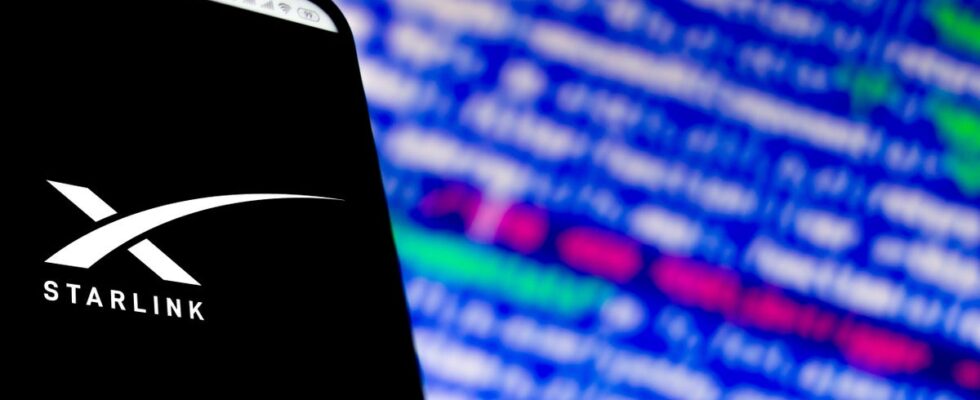Starlink, Elon Musk’s satellite internet program, has experienced a real legal imbroglio in France. Recall of facts. On February 18, 2021, Arcep authorized Starlink to provide fixed internet access from a constellation of satellites in low orbit and an earth station located in the Alpes Maritimes.
On April 5, 2022, the Council of State, seized by two environmental associations, Priartem and Agir pour l’environnement, canceled this authorization, accusing the telecoms regulatory authority of not having carried out a public consultation before granting its green light. In the eyes of the Council of State, the introduction of Starlink in France is, in fact, “likely to have a significant impact on the market for the provision of high-speed Internet access, and to affect end users “.
In accordance with this decision, Arcep is opening a public consultation on April 8, 2022 to collect reactions from interested parties. In particular, they highlight the benefit of developing satellite Internet to cover mobile “white areas” or those poorly served by fiber networks. Following this consultation, Arcep granted Starlink a new authorization to use radio frequencies in the 17.7-19.3 GHz and 29.5-30 GHz bands.
No impediment to competition
In August 2022, an appeal was filed by Viasat and Skylogic France, operators competing with Starlink, and the two aforementioned environmental associations. Beyond the impact of the Starlink project on the French market for Internet access from space, it evokes a risk of harmful interference for other satellite systems. Environmental impacts on the night sky or the risk of collision and creation of additional orbital debris are also advanced.
On April 17, 2023, the Council of State rejected this appeal considering that the technical conditions attached to the authorization to use frequencies were sufficient to prevent the risk of interference. Granted on a non-exclusive basis, this is not likely to affect competition between operators or hinder the emergence of other offers.
Finally, the High Court considers that it is not the role of Arcep to lay down “the conditions for the use of frequencies such as to prevent the risks relating to the pollution of the atmosphere, the multiplication of space debris in low orbit and the inconvenience caused for the observation of space”.
10,000 subscribers in France
Out of this legal rut, Starlink can continue its development in France. This subsidiary of SpaceX is building a constellation of some 12,000 satellites in the long term. Illustrating itself with the war in Ukraine, the network saw its traffic explode in 2022. In December, Starlink claimed more than one million subscribers in forty countries, including 10,000 in France.
In France, the subscription price was halved this summer to 50 euros per month. According to an article in Le Monde, the dish would be sold at a loss on the French market. It is currently set at 300 euros against more than 1,000 dollars (940 euros) in cost price.
star wars rages on
Starlink has chosen to launch its satellites in low orbit (approximately 550 km altitude) and not in geostationary positioning (35,786 km). By reducing the distance of round trips between the Earth and space, its service would gain in performance. On its site, the operator mentions a downlink speed between 50 and 200 Mbit/s and a latency time reduced to around 20 ms.
Starlink is positioned in a particularly competitive market. The incumbent operators Eutelsat and Inmarsat but also new entrants such as Amazon’s Kuiper target all French households located in remote areas or poorly served by wired offers. Orange recently signed a distribution agreement with OneWeb, another low orbit satellite operator.
